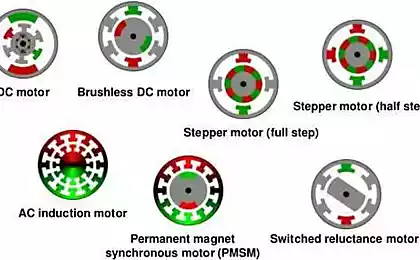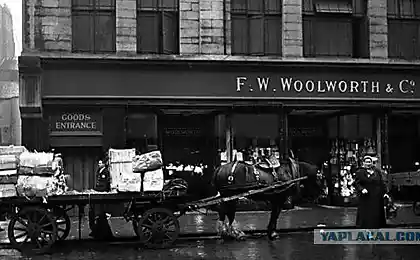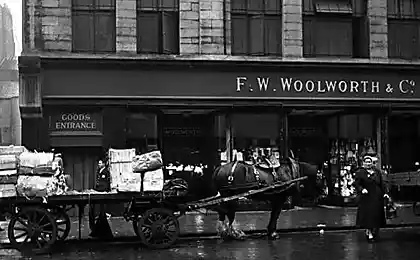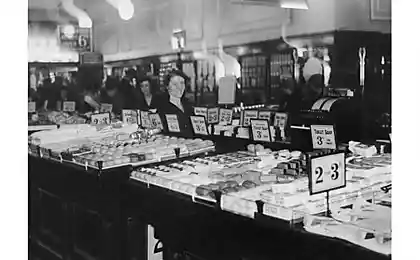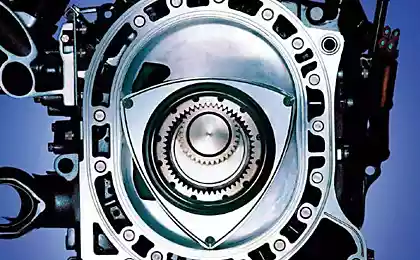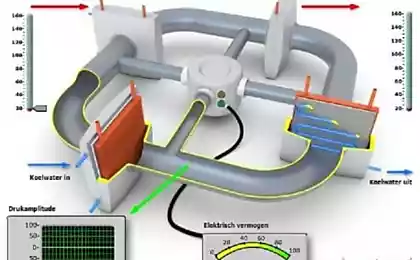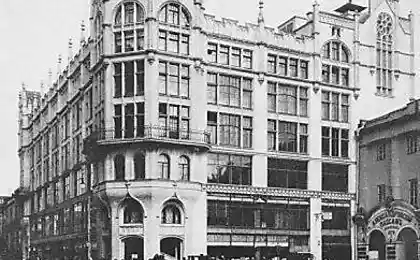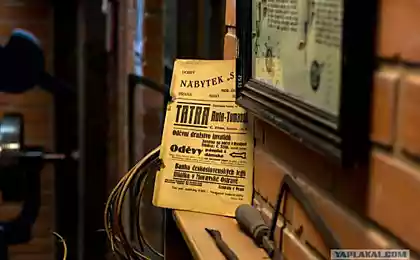564
Pitfalls for buyers in today's stores
Modern shops and supermarkets are a trap, in which you can easily find if you are not a free lunch, it just cheese at a discount. A primary goal of those who puts such a trap - to do everything possible so that the customer has left the cashier how much money.
Many believe that they did not operate tricks supermarkets, but practice shows that this is not true. Even if you come into the store with a shopping list, you can still buy some more completely the desired item. Or, if you need to buy only soap. Having come into the store, you will find five species of which you choose your favorite. The question is, what kind of packaging to take. Of course most, because it is profitable! So you leave the store more money.
Next to your "permanent" soap put more, competitive. It will have the same characteristics, but this plus some additional property. For example, it is added any oil. And it is just more expensive than on the ruble. It seems to be an insignificant difference, and store - benefits.
In order not to fall for the tricks of the supermarket, the shopping list is necessary to be very precise. For example, you must write the name of the manufacturer, specify the size of the stack, the approximate cost.
The magic numbers on the price tags
Of course, the bait that is most effectively on the buyer, is the price. Therefore, it is always written with large bright digits. However, it may be that such a price is available, for example, owners of discount cards, or all of, but only at night. Below, small inconspicuous figures will be designated the real price you will find after purchases. Nothing to complain about.
Good for the buyer and bright paper with inscriptions such as "New", "Just for today", "action", "special price". Maybe you were not going to buy, for example, laundry detergent, but for the money ... Consciousness tells you have to take!
Sometimes used method of "confusion price tags." For example, on a shelf facing many kinds of milk. And underneath tags placed in disarray, so that we must not immediately be found. As a result, you can buy goods, relying on their experience. Do you think that ordinary milk can not be expensive? It turns out that it can.
Very efficient principle of "related" goods. For example, next to the beer certainly will lay chips, crackers, dried fish. Even if you are not going to buy anything like this, be sure to temptation and take something.
Tricks on the shelves
Sami products on supermarket shelves are arranged according to specific rules. At the beginning of the stack usually is a product that is preferable to the supermarket to sell quickly. This product or with the deadline date, or just an expensive item, which is the cheaper alternative. Cheap goods are usually so uncomfortable that they get from the shelves, and the most expensive - at eye level. Often, should carefully examine the entire product, check its price and expiration date.
Goods that may attract the attention of the child is usually spread on the lower shelves where he could reach them. Charter a walk with my mother to the supermarket, children are sure to take with a some chocolate or toy. Yielding to the entreaties of your offspring, you certainly pay for them.
Sometimes the products are placed on the shelf so that they are easy to brush away and dropped in passing. Of damages is likely to have you, even though by law the store not entitled to demand from you payment. Sellers expect that most buyers will not waste your time on the showdown.
Music and flavors as bait
According to estimates of US researchers, every extra minute in the store costing us 2, 5 dollar. So the more you shop, the greater the risk to the temptation to give in and buy something else. Therefore, sellers are doing their best to make you stay longer in their store.
So, in many supermarkets there is a certain scheme of movement of buyers. The most important thing may be in the farthest corner of the trading floor. That is, for example, you bought a loaf of bread, but to pay for it, you have to consistently get around all the shelves.
Supermarkets usually plays nice relaxing music. This creates a cozy atmosphere, you relax, you stop rushing and, in the end, spend in the supermarket much more time than planned.
In sales rooms are often sprayed air freshener with scents of orange, lemon, baking. Smells awaken your appetite. Usually people go shopping after work, hungry and tired, respectively, only intensified the feeling of hunger. As a result, they become much more products.
Source.
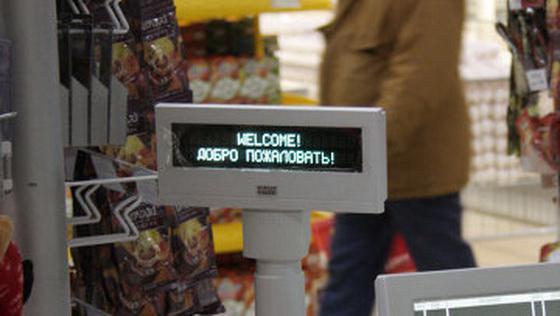
Source:
Many believe that they did not operate tricks supermarkets, but practice shows that this is not true. Even if you come into the store with a shopping list, you can still buy some more completely the desired item. Or, if you need to buy only soap. Having come into the store, you will find five species of which you choose your favorite. The question is, what kind of packaging to take. Of course most, because it is profitable! So you leave the store more money.
Next to your "permanent" soap put more, competitive. It will have the same characteristics, but this plus some additional property. For example, it is added any oil. And it is just more expensive than on the ruble. It seems to be an insignificant difference, and store - benefits.
In order not to fall for the tricks of the supermarket, the shopping list is necessary to be very precise. For example, you must write the name of the manufacturer, specify the size of the stack, the approximate cost.
The magic numbers on the price tags
Of course, the bait that is most effectively on the buyer, is the price. Therefore, it is always written with large bright digits. However, it may be that such a price is available, for example, owners of discount cards, or all of, but only at night. Below, small inconspicuous figures will be designated the real price you will find after purchases. Nothing to complain about.
Good for the buyer and bright paper with inscriptions such as "New", "Just for today", "action", "special price". Maybe you were not going to buy, for example, laundry detergent, but for the money ... Consciousness tells you have to take!
Sometimes used method of "confusion price tags." For example, on a shelf facing many kinds of milk. And underneath tags placed in disarray, so that we must not immediately be found. As a result, you can buy goods, relying on their experience. Do you think that ordinary milk can not be expensive? It turns out that it can.
Very efficient principle of "related" goods. For example, next to the beer certainly will lay chips, crackers, dried fish. Even if you are not going to buy anything like this, be sure to temptation and take something.
Tricks on the shelves
Sami products on supermarket shelves are arranged according to specific rules. At the beginning of the stack usually is a product that is preferable to the supermarket to sell quickly. This product or with the deadline date, or just an expensive item, which is the cheaper alternative. Cheap goods are usually so uncomfortable that they get from the shelves, and the most expensive - at eye level. Often, should carefully examine the entire product, check its price and expiration date.
Goods that may attract the attention of the child is usually spread on the lower shelves where he could reach them. Charter a walk with my mother to the supermarket, children are sure to take with a some chocolate or toy. Yielding to the entreaties of your offspring, you certainly pay for them.
Sometimes the products are placed on the shelf so that they are easy to brush away and dropped in passing. Of damages is likely to have you, even though by law the store not entitled to demand from you payment. Sellers expect that most buyers will not waste your time on the showdown.
Music and flavors as bait
According to estimates of US researchers, every extra minute in the store costing us 2, 5 dollar. So the more you shop, the greater the risk to the temptation to give in and buy something else. Therefore, sellers are doing their best to make you stay longer in their store.
So, in many supermarkets there is a certain scheme of movement of buyers. The most important thing may be in the farthest corner of the trading floor. That is, for example, you bought a loaf of bread, but to pay for it, you have to consistently get around all the shelves.
Supermarkets usually plays nice relaxing music. This creates a cozy atmosphere, you relax, you stop rushing and, in the end, spend in the supermarket much more time than planned.
In sales rooms are often sprayed air freshener with scents of orange, lemon, baking. Smells awaken your appetite. Usually people go shopping after work, hungry and tired, respectively, only intensified the feeling of hunger. As a result, they become much more products.
Source.

Source:



